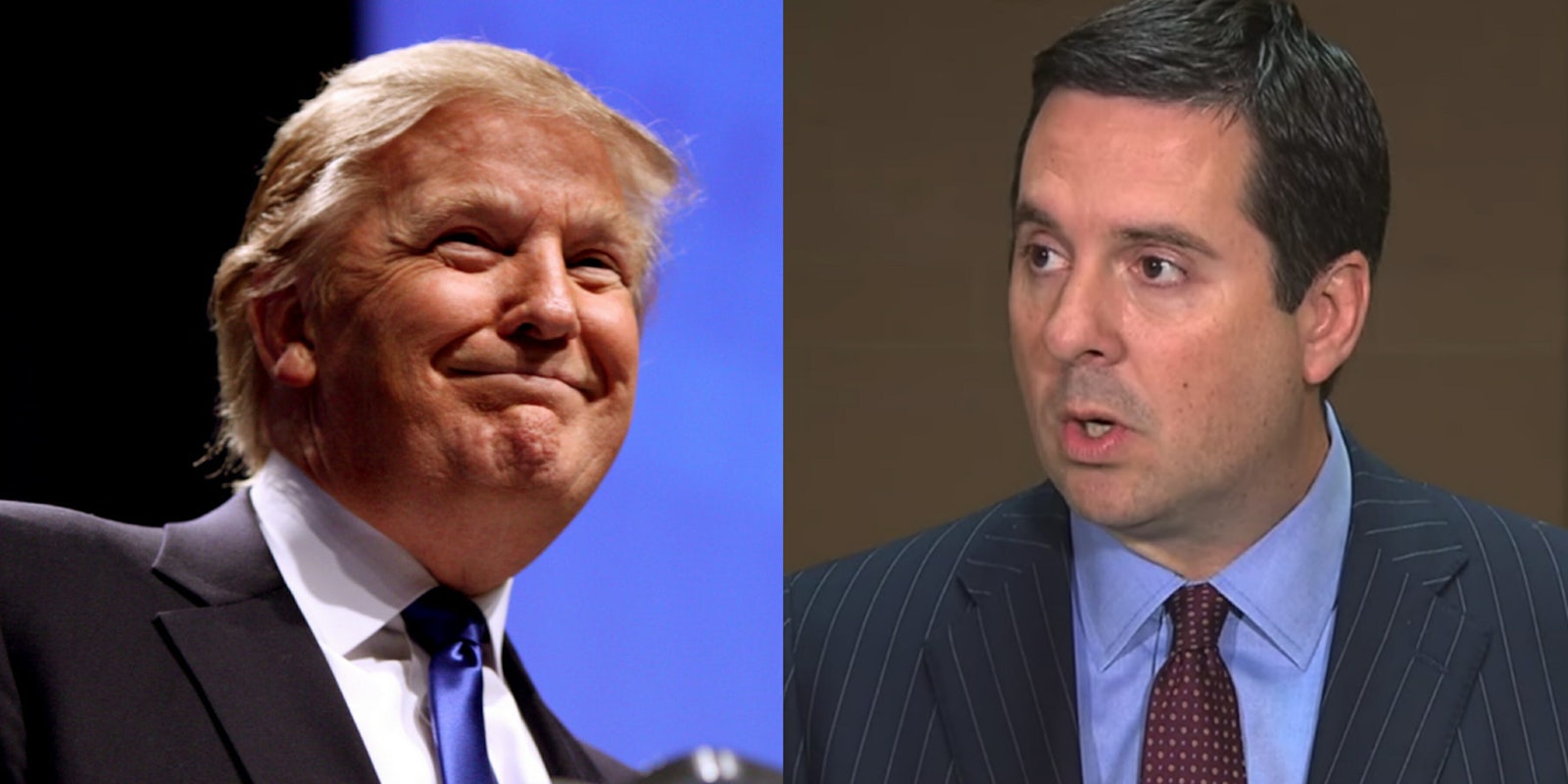You may have been confused in recent weeks when President Donald Trump started talking about the New England Patriots filming practices of other teams before games. You may have been even more confused when you started hearing him talk about “Spygate.”
“Wasn’t that resolved long ago?” you think.
But he wasn’t talking about that. Instead, he decided to co-opt the name of the most famous NFL scandal of all-time to talk about the FBI and his 2016 campaign.
Who knows why, but here’s the deal.
What is Spygate?
“Spygate” is the term President Trump gave to the conspiracy theory, concocted largely by him and his allies in the conservative media, that the FBI had a paid informant embedded in his presidential campaign, who was sending information back to the Obama administration and the Hillary Clinton campaign.
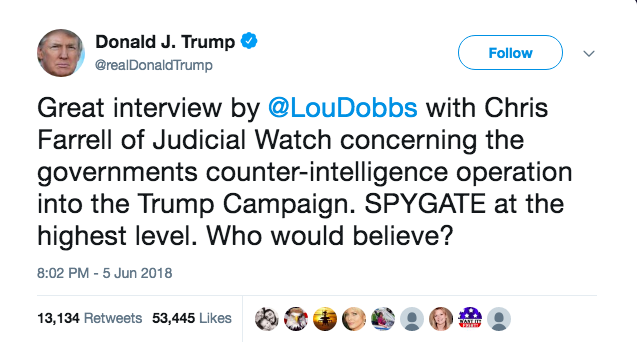
READ MORE:
- Untangling antifa, the controversial protest group at war with the alt-right
- From ‘alt-right’ to white supremacy: A guide to America’s new racists
- 10 surprising facts about Alex Jones, far-right conspiracy theorist
- 13 InfoWars conspiracy theories you won’t believe exist
When did Spygate start?
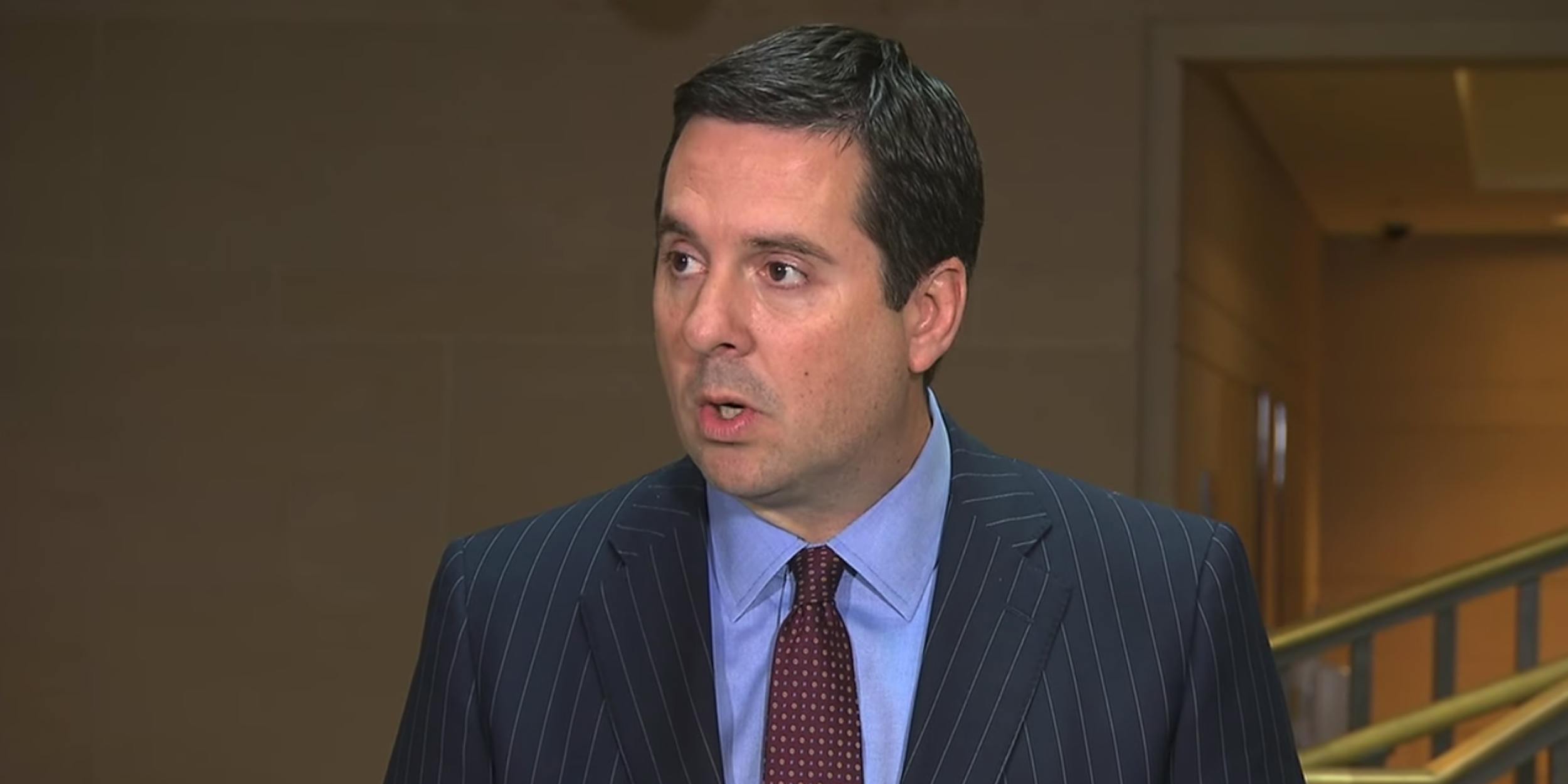
The notion of the FBI spying on the Trump campaign started with a May 8 story from the Washington Post on how the Justice Department withheld information from House Intelligence Committee chairman Devin Nunes to avoid exposing the identity of “a U.S. citizen who has provided information to the FBI and CIA.”
Once the story hit conservative media, it mutated into the FBI having a paid mole in the Trump campaign. After being discussed by Sean Hannity, Rush Limbaugh, and the panelists on Fox and Friends, it was now the story of Obama and the FBI having a direct line into the Trump campaign’s secrets, which were used by the deep state to try to prevent his election.
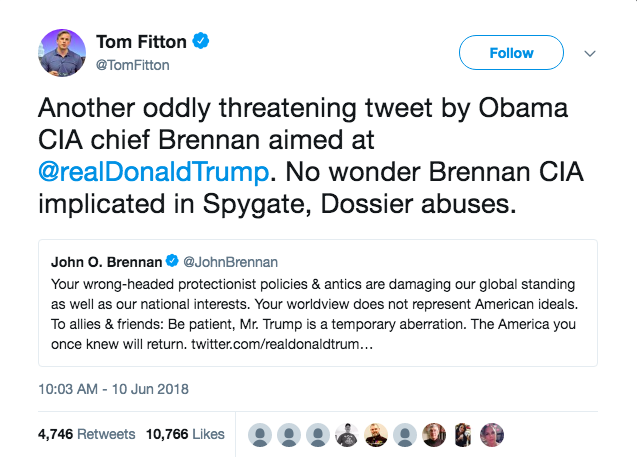
Nunes himself appeared on Fox and Friends on the May 15, agreeing with the narrative that it sounded like “there was a spy” in the campaign. This ran headlong into a New York Times story the next day about the FBI starting a top-secret counterintelligence investigation of the Trump campaign’s Russian ties, with “at least one government informant” meeting with several Trump staffers.
The next morning, Andrew McCarthy at the mainstream conservative publication National Review wrote a story about a “counterintelligence investigation against the Trump campaign” with no criminal activity suspected, and with the direct blessing of the Obama administration. Via Twitter, Trump quoted McCarthy’s allegation.
Wow, word seems to be coming out that the Obama FBI “SPIED ON THE TRUMP CAMPAIGN WITH AN EMBEDDED INFORMANT.” Andrew McCarthy says, “There’s probably no doubt that they had at least one confidential informant in the campaign.” If so, this is bigger than Watergate!
— Donald J. Trump (@realDonaldTrump) May 17, 2018
Trump spent the next few days tweeting incessantly about what he referred to as Spygate. He called it the “all time biggest political scandal” and “worse than Watergate,” while praising the Fox News personalities who exposed the “scandal” to the public.
The “Spygate” term itself was first used by Trump on May 23, and he continued tweeting about it well into June 2018. He often linked to conservative pundits and media figures producing stories favorable to the narrative he was creating. He also latched on to a fake news story linking two FBI agents’ text messages to an apparent investigation into Trump.
SPYGATE could be one of the biggest political scandals in history!
— Donald J. Trump (@realDonaldTrump) May 23, 2018
Is there any evidence Spygate is true?
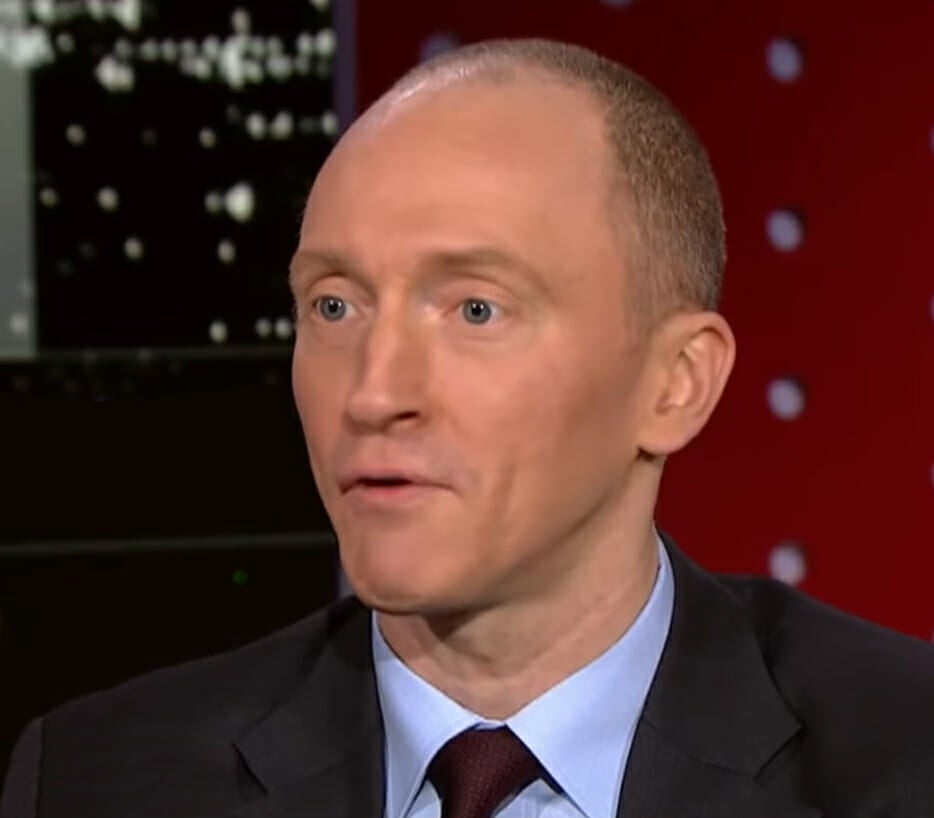
There is no publicly-available evidence that the FBI, Justice Department, or Obama administration had a paid “spy” in the Trump campaign.
The only truth to the conspiracy theory is that the FBI in fact did have an informant working as part of their investigation into Trump staffers’ Russian ties.
That informant, Stefan Halper, was never a Trump staffer himself and never worked for Trump or the Trump campaign in any capacity. He did meet with several Trump staffers in an effort to assess the connections between the Trump campaign and Russia—and has since become the subject of innumerable conspiracy theories himself.
Halper himself is a longtime Republican consultant who had worked for four different Republican presidents. He had met with, and reported back to the FBI on, both George Papadopoulos, who has already been indicted for lying to the FBI, as well as Carter Page, who is being extensively investigated by the Special Counsel’s office. It’s not clear what Halper told the FBI.
READ MORE:
- What is FISA? The surveillance law that’s tearing congress apart
- Could Bernie Sanders run—and win—in 2020?
- Who is George Soros, conservatives’ biggest boogeyman?
- There’s no such thing as the ‘alt-left’—and here’s why
Other than President Trump, who are the proponents of the theory?
The conspiracy theory is almost entirely an invention of conservative media figures. In that respect, they seem to be Spygate’s most prolific supporters. As early as his May 11 show, Rush Limbaugh declared with certainty that the FBI and Obama administration “infiltrated the Trump campaign with a spy, and while they had that spy implanted, they were unmasking and leaking and obtaining FISA spying warrants and conducting criminal investigations of Trump advisers.”
Other conservative pundits, including Lou Dobbs, Laura Ingraham, Andrew Napolitano, and blogger Jim Hoft, have embellished the narrative with claims of multiple spies in the Trump campaign. They’ve also claimed that information was passed directly to Hillary Clinton. The other major supporters of the Spygate narrative are the small clutch of Republican members of the House who seem to march in lockstep with Trump.
Republican Congressmen Matt Gaetz, Jim Jordan, Mark Meadows, Lee Zedelin, and several others have folded the Spygate conspiracy into their ongoing narrative of foundational rot and comprehensive abuses in the FBI–mostly directed toward Trump. They’ve even gone as far as attacking their own Speaker of the House, Paul Ryan, for his criticism of the conspiracy.
Who doesn’t believe in Spygate?
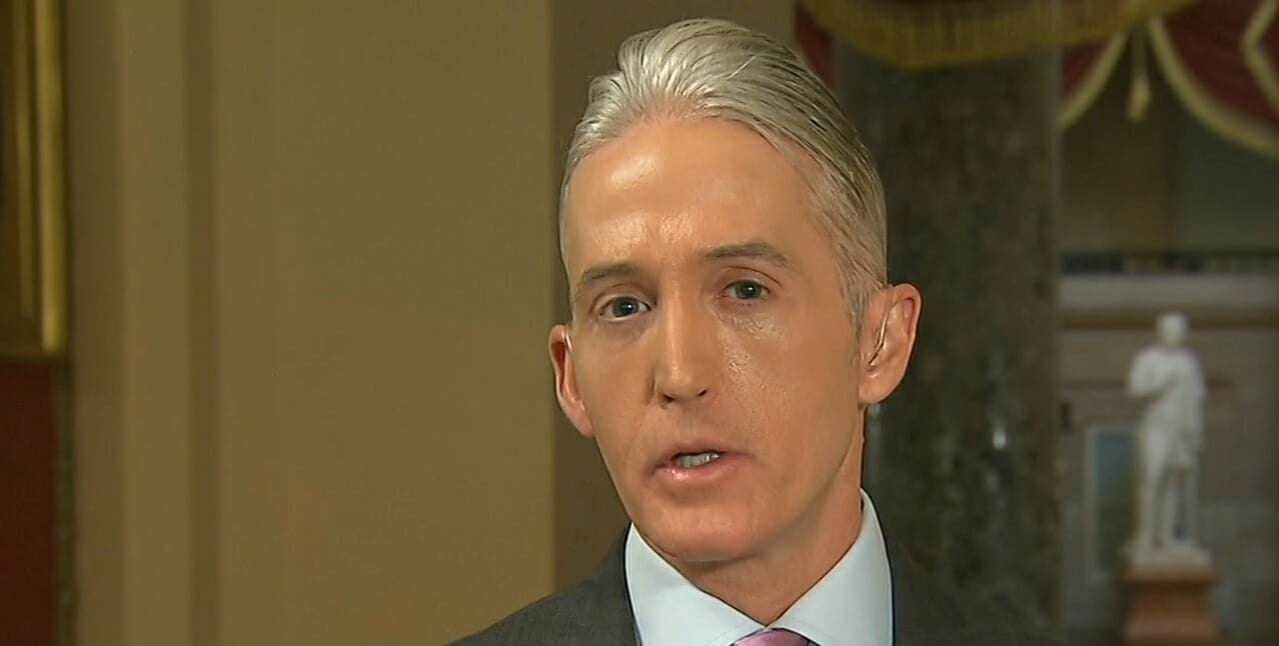
Polling has indicated that the majority of the American people, for one, don’t support the Spygate narrative. There is also not lockstep agreement among conservative pundits, with Fox News’ Shepard Smith declaring that “Fox News knows of no evidence to support the president’s claim.”
But the most surprising skeptics of Spygate appear to be other Republicans. Retiring Congressman Trey Gowdy, an almost constant thorn in the side of Hillary Clinton over the Benghazi affair, explicitly shot down the notion that the FBI was spying on the Trump campaign, insisting that the FBI did its job in investigating possible Russian interference in the election.
Paul Ryan later echoed Gowdy’s findings, calling them “accurate” and that he’d seen no evidence to the contrary. This drew the also-retiring Speaker savage criticism from Trump’s House allies, who called Ryan’s remarks “shameful” and “frustrating,” and said Ryan was “siding with the deep state” against the president.
Spygate news
After a flurry of media coverage in late May and early June, the conspiracy theory seems to have fizzled out. Trump himself has moved on to picking fights with America’s allies over tariffs, and the country’s attention has shifted to the North Korea summit, and then to the ongoing saga of child separation at the U.S./Mexico border.
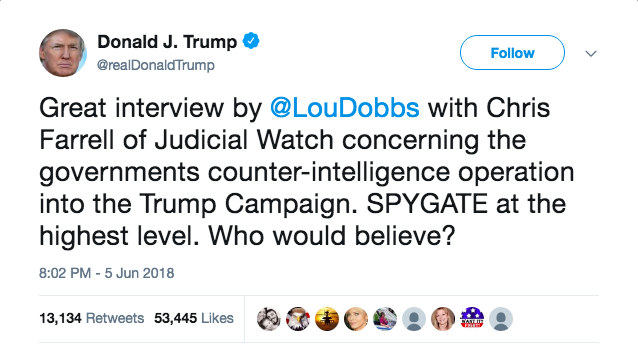
Conspiracy theorists and the president moved on to what they believed would be the next big bombshell, the Department of Justice Inspector General’s report, released on June 14. But like so many of the FBI-related dramas that Trump and his staff created, that fizzled out as well.
Editor’s note: This article is regularly updated for relevance.

